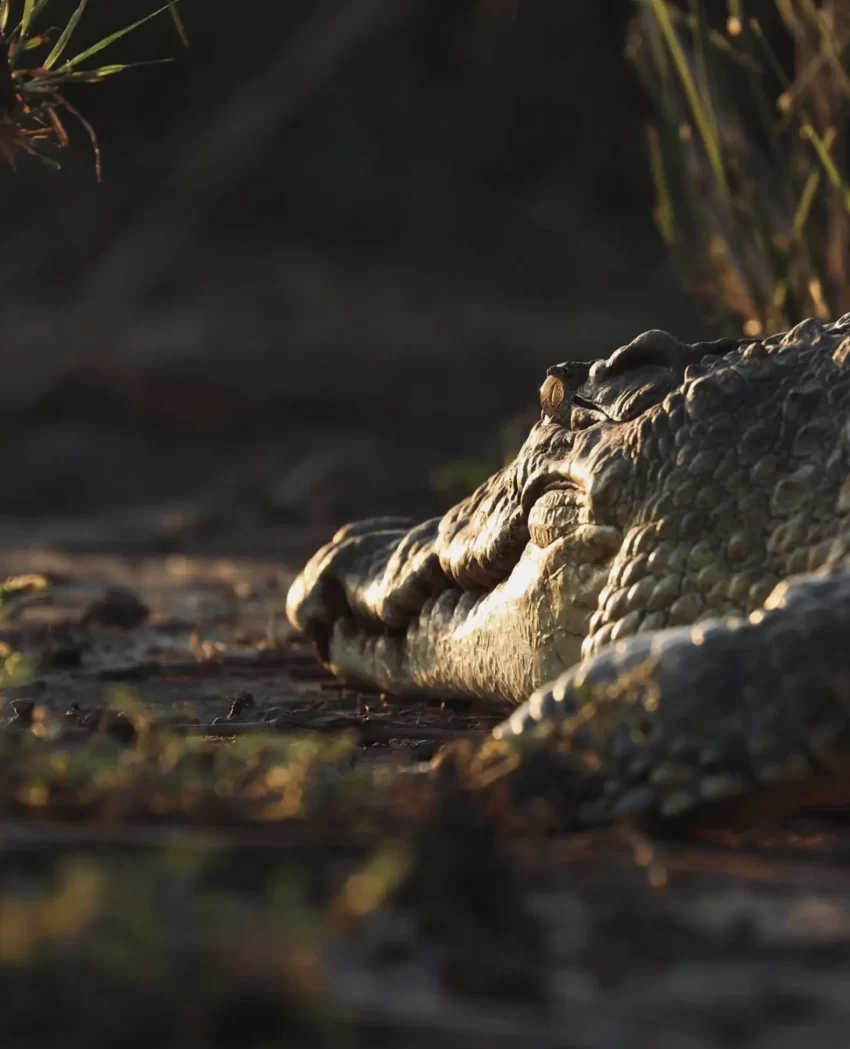Crocodiles are amazing creatures that have been around for millions of years and fascinate scientists and wildlife enthusiasts. One of the most interesting things about them is their sleep patterns. Do crocodiles sleep and if so how do they stay so alert? Let’s dive into the sleeping habits of crocodiles, their special adaptations and their ancient history.
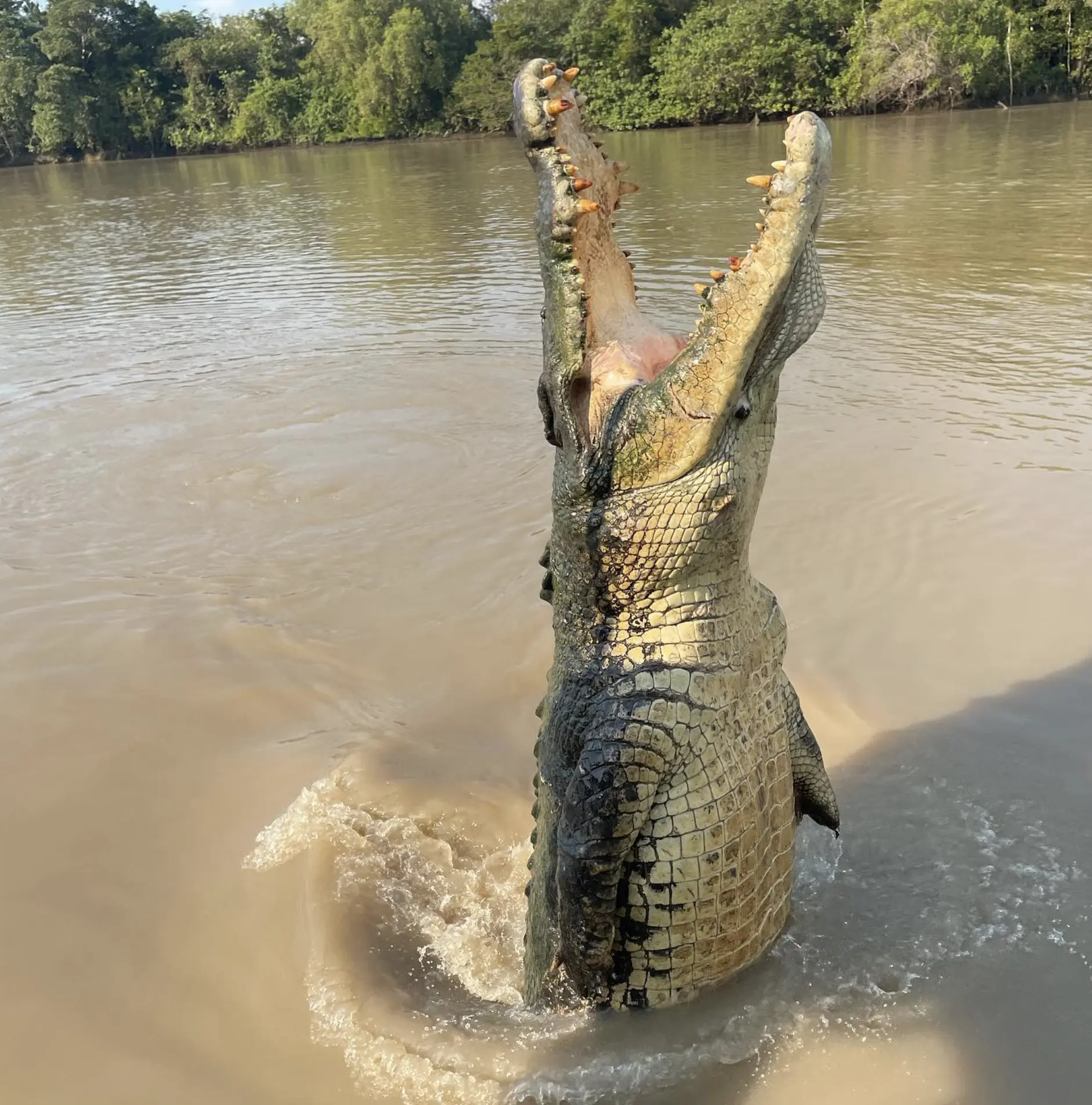
Crocodile Sleep
Yes, crocodiles do sleep but their sleep is very different from mammals. Crocodiles have unihemispheric slow-wave sleep (USWS) where one half of the brain is awake while the other half is asleep. This allows them to be partially alert, a must for survival in the wild.
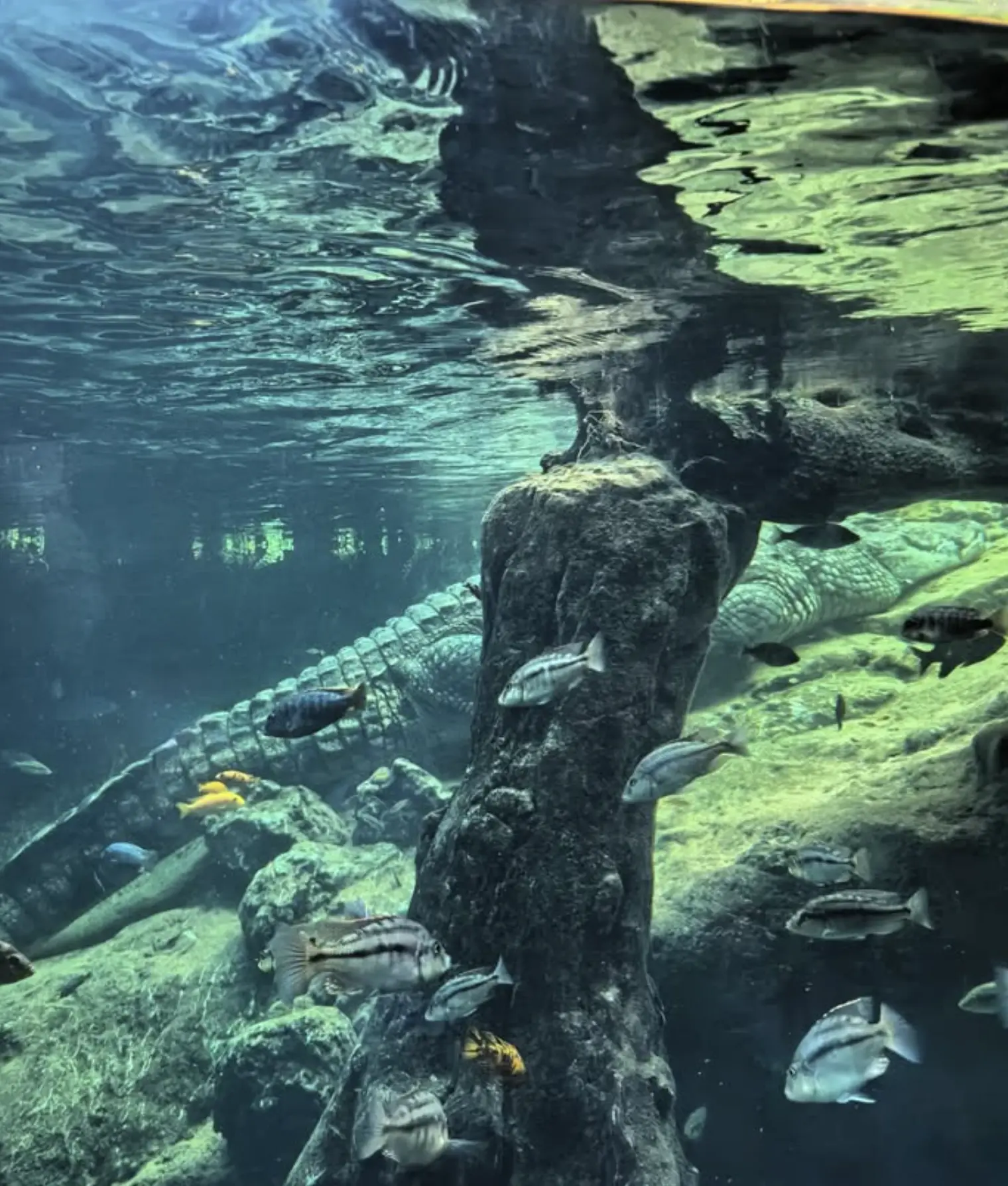
Crocodile Sleep Features
- Clever Crocodiles: With one eye open, crocodiles can watch for threats and prey, more alert than most animals.
- Crocodilian Brain: Their brain is designed to switch between rest and alert state.
- Brain Activity: Research on crocodilian brain patterns show slow-wave sleep with brief periods of high alertness.
Where and How Do Crocodiles Sleep?
Crocodiles are choosy about where they sleep, they choose places that are safe and close to their habitat. Common sleeping spots:
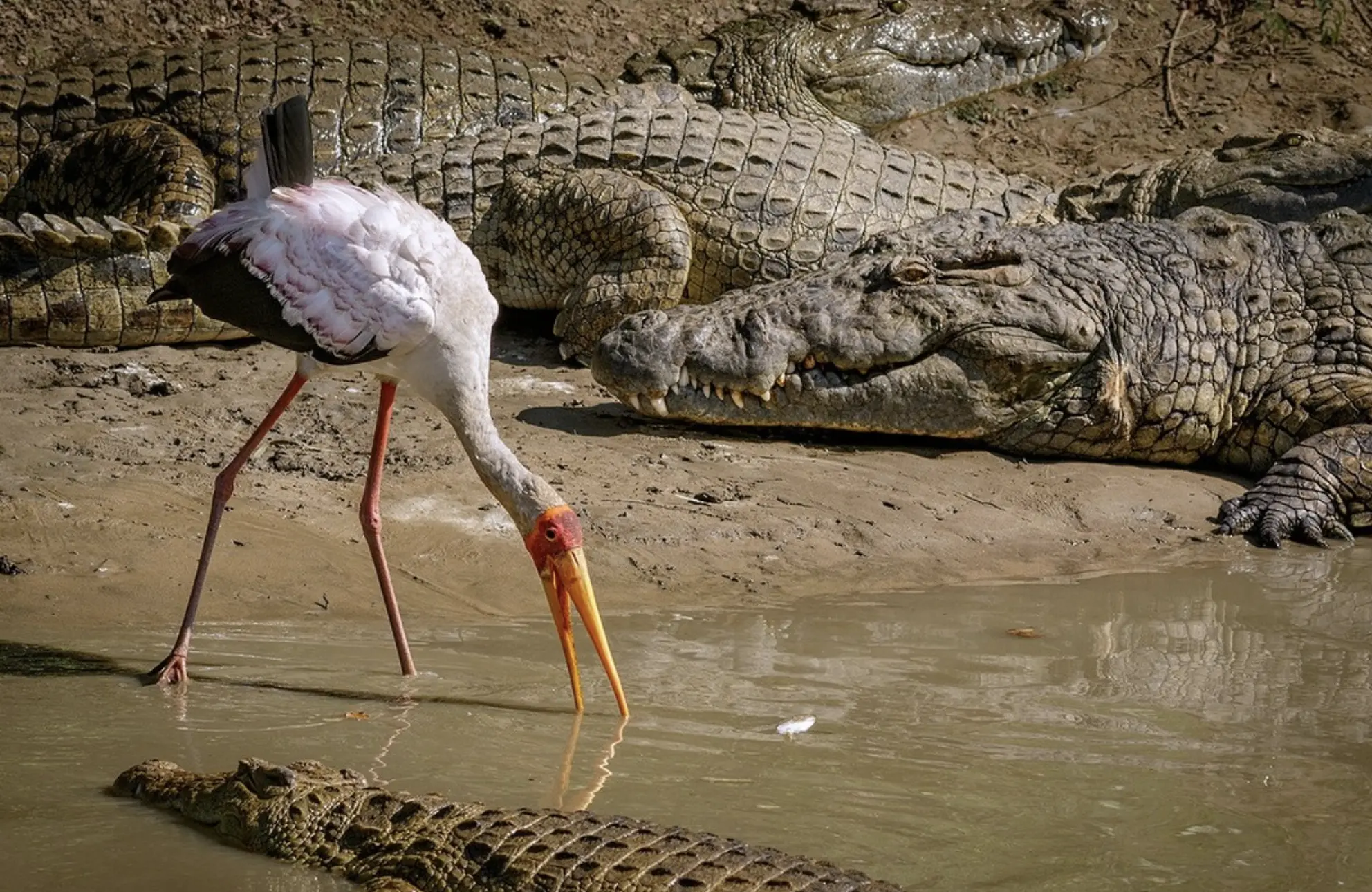
- Riverbanks and Shorelines: Saltwater crocodiles and Nile Crocodiles often rest along water edges where they can sunbath while close to safety.
- Shallow Waters: They submerge themselves partially and keep their nostrils and eyes above water, camouflaged.
- Burrows or Hidden Spots: During extreme weather or nesting season, crocodiles dig burrows or hide in dense vegetation to sleep undisturbed.
Nearby, you can visit Kakadu National Park where saltwater crocodiles are the dominant inhabitants of the waterways or Daintree Rainforest for incredible wildlife experiences. Darwin crocodile tour and Jumping Crocodile tours include these places in their itinerary so you can see crocodiles in their natural habitat.
How Long Do Crocodiles Sleep?
Crocodiles are polyphasic sleepers, sleeping in short bursts throughout the day and night. Here are the factors that affect their sleep duration:
- Crocodile in Captivity: Up to 17 hours in controlled environments.
- Wild Conditions: Fragmented sleep patterns due to threats, weather or prey availability.
- Seasonal Variation: Longer sleep during wet season when they conserve energy for breeding.
Why Do Crocodiles Sleep with One Eye Open?
This is crocodilian ingenuity in action and serves several purposes:
- Predator Protection: Even a big crocodile like the American alligator or Nile Crocodile needs to watch out for threats.
- Prey Detection: Being partially awake ensures they can react fast if prey comes near.
- Territorial Monitoring: In crowded areas, sleeping with one eye open helps to maintain dominance.
Crocodile Sleep and Ancient Traits
Crocodiles share a common ancestor with birds and dinosaurs, that’s why they have these unique physiological features. Their reversion to alligator-like traits like slow metabolism and unihemispheric sleep is evolutionary adaptation.
The IUCN Crocodile Specialist Group is studying these behaviors to help understand crocodile ecology and conserve them. Ancient cultures worshipped crocodiles, they were considered ancestor spirits and deities. Crocodile myths like the giant earth crocodile still fascinates us today.
Quick Facts About Crocodile Sleep
| Feature | Details |
|---|---|
| Type of Sleep | Unihemispheric Slow-Wave Sleep (USWS) |
| Duration | 17 hours in captivity, fragmented in the wild |
| Position | Land, shallow waters, or burrows |
| Behavior | One eye often remains open |
| Ancient Connection | Shared traits with a common ancestor |
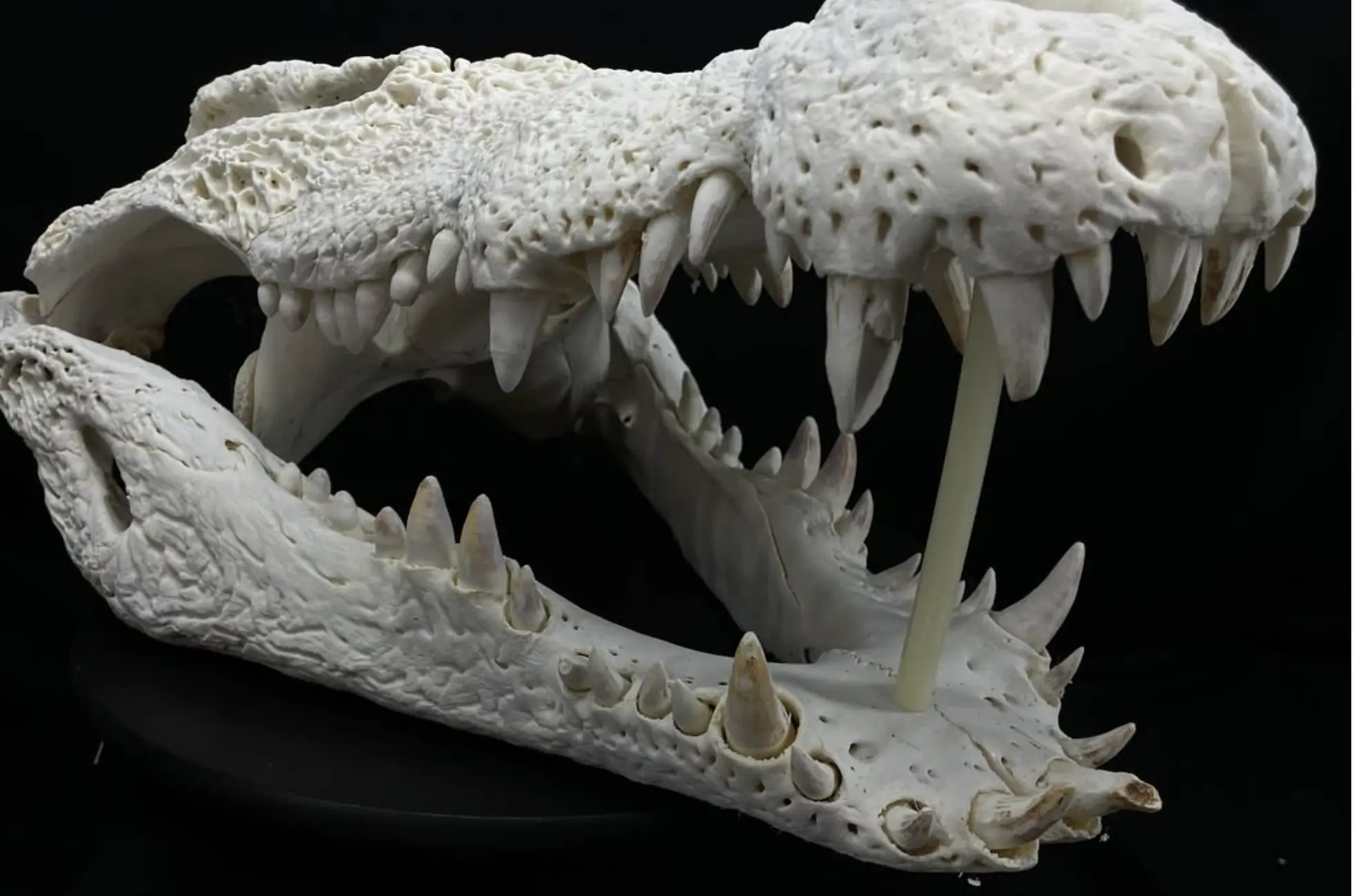
Do Crocodiles Dream?
There’s no proof of crocodiles dreaming but studies on their brain activity suggest they might have some form of dream like experience. But since they don’t have REM sleep they won’t have vivid dreams like humans.
Crocodile Sleep and Human Interaction
Crocodiles have been fascinating humans for centuries and have inspired myths and legends. From crocodile tears to crocodile gods, these reptiles are part of human culture. Conservationists including the Crocodile Specialist Group are working to protect crocodiles and their habitats, addressing threats like habitat destruction and the demand for crocodile products.
Jumping Crocodile Shows: A Wild Thrill
One of the most exciting experiences for wildlife enthusiasts is jumping crocodile tour Darwin. Found in places like the Adelaide River in the Northern Territory, these shows demonstrate the raw power and agility of saltwater crocodiles as they jump out of the water to catch the bait. This is their natural hunting behavior and shows their strength and precision. Visitors take specialized Jumping Crocodile cruises where they can safely see these amazing creatures up close. Darwin Jumping Crocodile tour not only give you an unforgettable experience but also educate you about crocodile biology, conservation and their importance in the ecosystem.
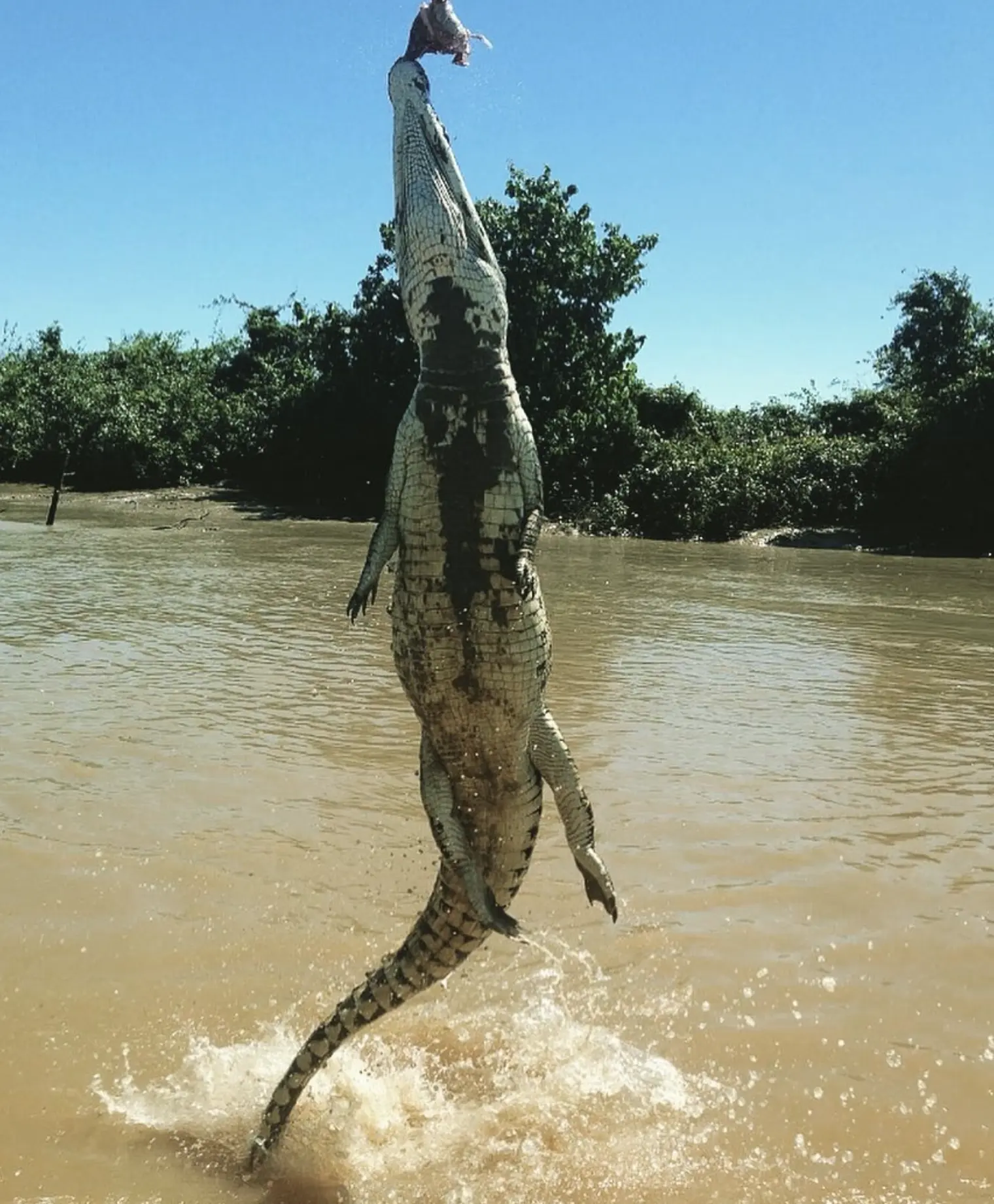
Conclusion
Crocodiles’ sleep patterns are a reflection of being apex predators with ancient adaptations. They can stay alert even when resting, that’s how resilient and clever they are. Whether it’s the saltwater crocodile, American alligator or Nile Crocodile, these guys are still amazing and curious.
FAQs
Do crocodiles sleep underwater?
Yes, crocodiles rest underwater with their nostrils above the surface to breathe.
How long can crocodiles go without sleep?
In the wild, crocodiles can reduce sleep during active hunting periods but they usually make up for it with short naps.
Do crocodiles have REM sleep?
No, crocodiles don’t have REM sleep which is found in mammals and birds.
Why are crocodiles part of myths?
Crocodiles’ ancient history and powerful presence inspired myths like the giant earth crocodile and their connection to ancestor spirits.
How do scientists study crocodile sleep?
Organizations like the Crocodile Specialist Group and databases like the Crocodilian Biology Database are involved in research on crocodilian behavior and physiology.

